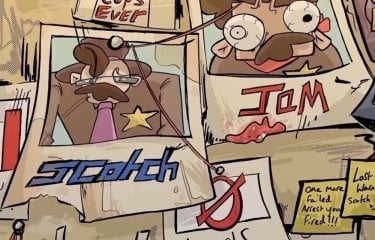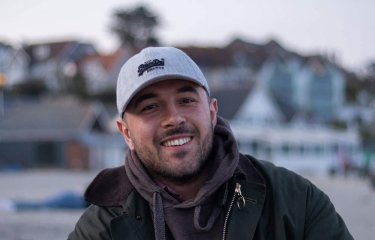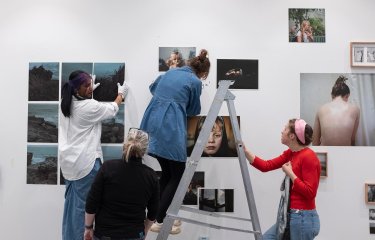DEATH x DESIGN x CULTURE: Falmouth hosts conference exploring design’s role in death
30 October 2024

Please be advised that this article includes discussion of suicide.
2024 welcomed the inaugural DEATHxDESIGNxCULTURE conference to Falmouth. The event brought together an interdisciplinary group of researchers, practitioners, and designers to critically explore the role of design in relation to death and dying in our shared cultures.
With a strong focus on interdisciplinarity, the event facilitated knowledge exchange between experts in social sciences, the humanities, and various design fields.
Contributions came from a diverse range of areas, including graphic design, architecture, digital design, fashion design, and product design, highlighting the versatility and expansive nature of design in addressing issues of mortality.
The event was organised by Falmouth University senior lecturers Dr Robyn Cook, Nikki Salkeld and Ashley Rudolph in partnership with the Death and Culture Network at the University of York (UK), Stamps School of Art & Design at the University of Michigan (USA), and the Glasgow End of Life Studies Group at the University of Glasgow (UK).
Nikki Salkeld and Ashley Rudolph, are the co-founders of MOTH, which started as a research project in 2013.
“Originally we set out to explore how communication designers can contribute to end-of-life studies” says Nikki. “We were curious and saw opportunities for designers to aesthetically understand and engage with this topic.”
Ashley added “Several years ago, we held a symposium called In the Face of Death, a collaborative project with Augsburg University. The culmination of that project was a symposium event at Falmouth which we saw as a great opportunity to bring more speakers together and expand the conversation. We've been proud to put this event together.”
The event featured talks from creator of the ‘Euthanasia Coaster’ Julijonas Urbonas and expert on Old Age Rational Suicide (OARS) Naomi Richardson as well as a workshop focussing on provocative designs for end-of-life reflection by the University of Michigan’s Bruce Tharp. PhD student Ian Walden also exhibited a walk-in corner shop named ‘Mortem Stores’ to generate conversations around OARS, a project that he’d spent months creating from scratch.





Nikki says, “there’s often a misconception that people involved in events around death are gloomy or morbid. By talking about death openly, it becomes something universal that we can all relate to. Death is a universal subject that affects everyone. At this conference, we’re meeting strangers and talking about life stories, which is actually life-affirming. The week has been full of joy, laughter, and wisdom. People who think about death are often the ones who appreciate life the most, making every moment precious. There's a value in this awareness that's enormously important for those who study and work in this field.”




